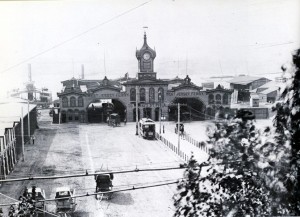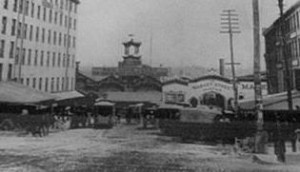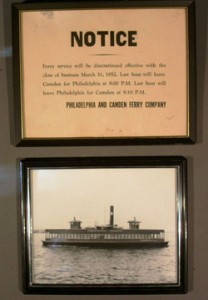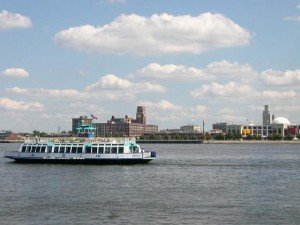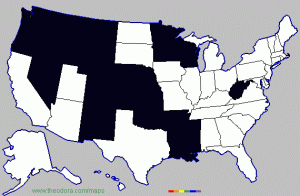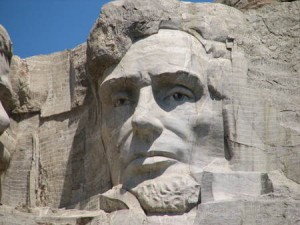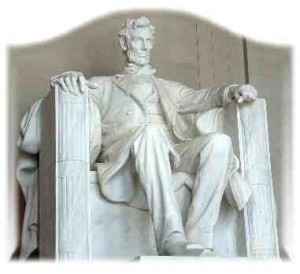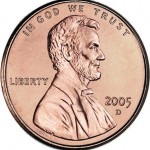Jillian’s Cultural Museum
Whitman and Friends
Two men close to Walt Whitman were Dr. Maurice Bucke and Horace Traubel. Both of the men worshiped Whitman and spent their lives dedicated to honoring his work. They are also considered, Whitman’s disciples[1] for their enthusiastic willingness to spread the works of Whitman and educate others through his literature. In addition, they were also both Whitman’s literary executors, along with his attorney Thomas Harned.
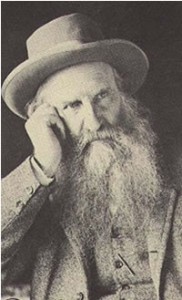 Maurice Bucke
Maurice Bucke

Dr. Maurice Bucke was born in 1837 in Norfolk, England but grew up in Canada after having moved there when he was one year old. When he was sixteen years old he left home and went through near fatal journey that included walking through many mountains in harsh weather. The result was almost fatal and left him without a foot and several lost toes. He was extremely lucky to have survived.
Not long after Bucke recovered from his injuries, he began attending medical school at McGill University. This opportunity came to him through an inheritance and he was fortunate enough to also study in both London and Paris. Upon graduation he worked as a ship surgeon but later settled in the field of psychiatry. He began his practice in Sarnia, Ontario. Soon after he married Jessie Gurd and together they had eight children.
In addition to his work with psychiatry, Bucke was very interested in literature. He was fascinated with Whitman and it is said that he committed much of Whitman’s work to memory. While in Philadelphia on a business trip, Bucke crossed the river into Camden and looked up Whitman. (Could you even imagine doing such a thing today!!) After their initial meeting they became good friends and often traveled together. In the summer of 1880, Whitman even stayed with Bucke at his home in Canada. Bucke worshiped Whitman and Whitman considered Bucke a dependable and loyal friend.
In 1883 they collaborated together on a biography of Whitman. He devoted much of his time and energy to writing, editing and overseeing the publication of Whitman materials.
Bucke also served as Whitman’s medical consultant through the end of Whitman’s life. There is a mass of letters between the two in which Whitman asks for medical advice from Bucke and he treated him directly in the very end of his life. He also helped Whitman to re-write his will and on the day of his death, Bucke was there with him.
After Whitman’s death, Bucke remained committed to their friendship and continued to work on editing several posthumous volumes of Whitman’s writings. He was also one of the editors of Whitman’s Complete Writings. In 1992 a Canadian feature film, Beautiful Dreamers was filmed; it was based on the relationship between Whitman and Bucke, specifically focusing on the 1880 summer visit in Canada.
Maurice lived for ten more years after Whitman died. He slipped on a patch of ice and died from head trauma at 65 in London, Ontario.
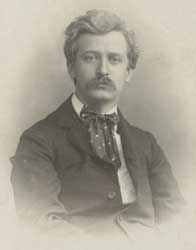 Horace Traubel
Horace Traubel
Horace Traubel was born in 1858 in Camden, New Jersey. At the age of twelve he quit school and began working at his father’s stationary school. This prepared him well for a job in print and at sixteen he moved to Philadelphia and became a correspondent for the Boston Commonwealth. It has been said that Traubel is the “epitome of the Progressive Era” (SOURCE). He believed deeply throughout his entire life in the teleological movement of humankind towards its betterment. His personality was such that he was interested in everything for the sake of the things themselves and “he would routinely spend two to three hours per day writing letters to his friends as well as finding and sending them appropriate clippings from other newspapers” (SOURCE).
Traubel’s friendship with Whitman began early in Traubel’s life, while he was still living in Camden as a young boy. They first met when Whitman moved to Camden to live with his brother after his stroke. Because Traubel was only around thirteen years old[2] when they met, neighbors were concerned and their friendship was considered a scandal. Regardless they stayed close even after Traubel moved and in the last years of Whitman’s life Traubel authored the multi-volume biography, Walt Whitman in Camden. Traubel felt as though he was the “spirit child” of Whitman. He later founded, edited and published of The Conservator, a journal dedicated to Whitman.
At the time of Whitman’s death, Traubel had known Whitman for almost twenty years. He dedicated the rest of his own life to keeping Whitman’s work alive and published many Whitman inspired poems. He also published large volumes of his conversations with Whitman that he had written down over the years. A month before he died, Traubel took a final trip to Canada to see a park be dedicated to the honor of Whitman. During the dedication, speaker Helen Keller called for a standing ovation for Traubel in recognition for his tireless efforts to pass along the works of Whitman and for his continuous work in the field of humanity.
Traubel died on May 13, 1919, one year after suffering a serious stroke. He was buried not far from Whitman in the Harleigh cemetery.
Henning, Matthew. Walt Whitman Biography. http://pabook.libraries.psu.edu/palitmap/bios/Traubel__Horace.html
Nelson, Howard. The Walt Whitman Archive. Disciples: Biography, Richard Maurice Bucke. http://www.whitmanarchive.org/criticism/disciples/tei/anc.00247.html
Nelson, Howard. The Walt Whitman Archive. Disciples: Biography, Horace Traubel http://www.whitmanarchive.org/criticism/disciples/tei/anc.00249.html
[1] There were four total disciples. The others were John Burroughs and William Douglas O’Connor
[2] Conflicting accounts of Traubel’s age when having met Whitman; three different sources listed the age as twelve, thirteen and fourteen respectively.
Filed in Uncategorized No Responses yet
